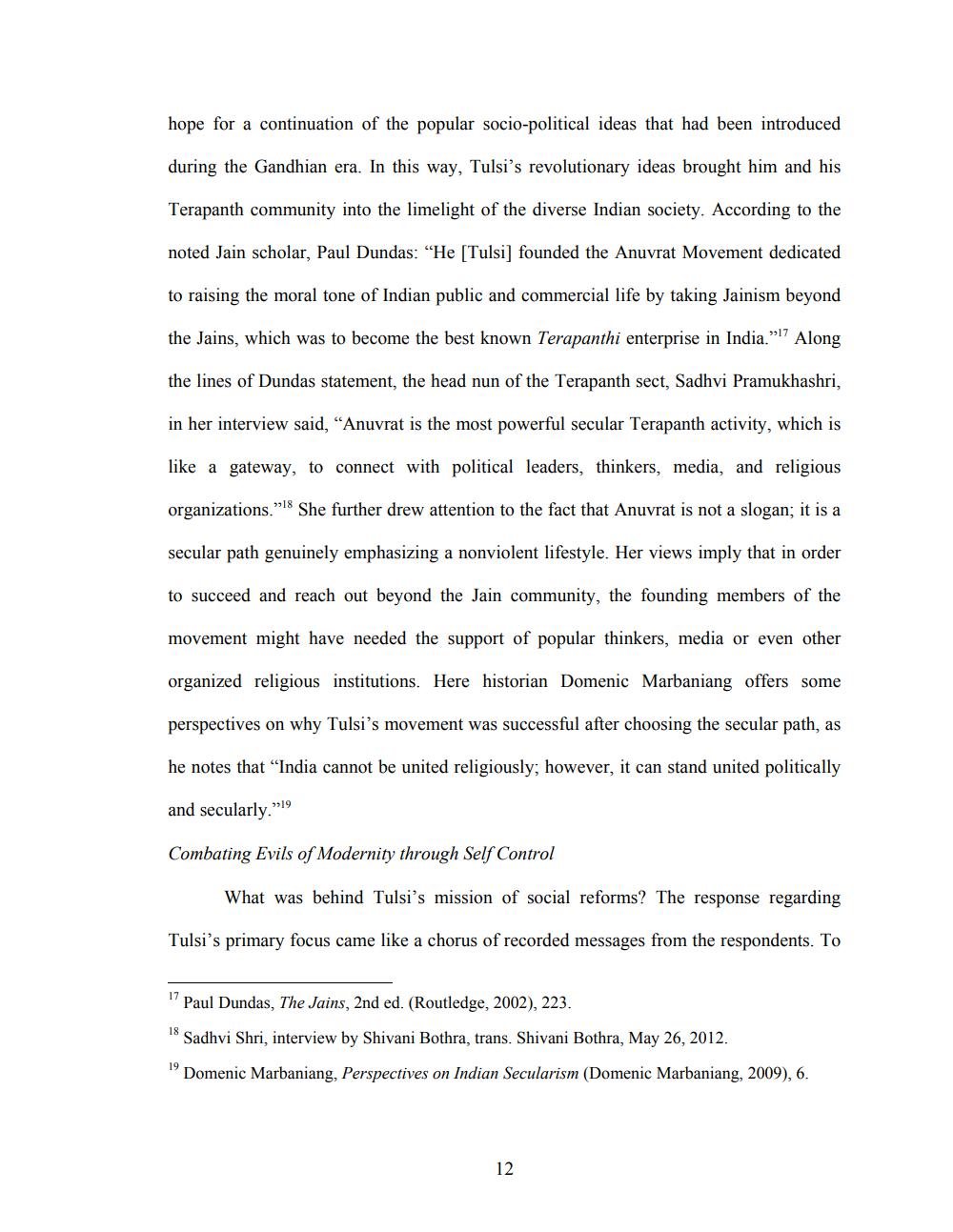________________
hope for a continuation of the popular socio-political ideas that had been introduced
during the Gandhian era. In this way, Tulsi's revolutionary ideas brought him and his
Terapanth community into the limelight of the diverse Indian society. According to the
noted Jain scholar, Paul Dundas: "He [Tulsi] founded the Anuvrat Movement dedicated
to raising the moral tone of Indian public and commercial life by taking Jainism beyond
the Jains, which was to become the best known Terapanthi enterprise in India."!? Along
the lines of Dundas statement, the head nun of the Terapanth sect, Sadhvi Pramukhashri,
in her interview said, "Anuvrat is the most powerful secular Terapanth activity, which is
like a gateway, to connect with political leaders, thinkers, media, and religious
organizations." She further drew attention to the fact that Anuvrat is not a slogan; it is a
secular path genuinely emphasizing a nonviolent lifestyle. Her views imply that in order
to succeed and reach out beyond the Jain community, the founding members of the
movement might have needed the support of popular thinkers, media or even other
organized religious institutions. Here historian Domenic Marbaniang offers some
perspectives on why Tulsi's movement was successful after choosing the secular path, as
he notes that “India cannot be united religiously; however, it can stand united politically
and secularly."19
Combating Evils of Modernity through Self Control
What was behind Tulsi's mission of social reforms? The response regarding
Tulsi's primary focus came like a chorus of recorded messages from the respondents. To
"Paul Dundas, The Jains, 2nd ed. (Routledge, 2002), 223. 18 Sadhvi Shri, interview by Shivani Bothra, trans. Shivani Bothra, May 26, 2012.
Domenic Marbaniang, Perspectives on Indian Secularism (Domenic Marbaniang, 2009), 6.




